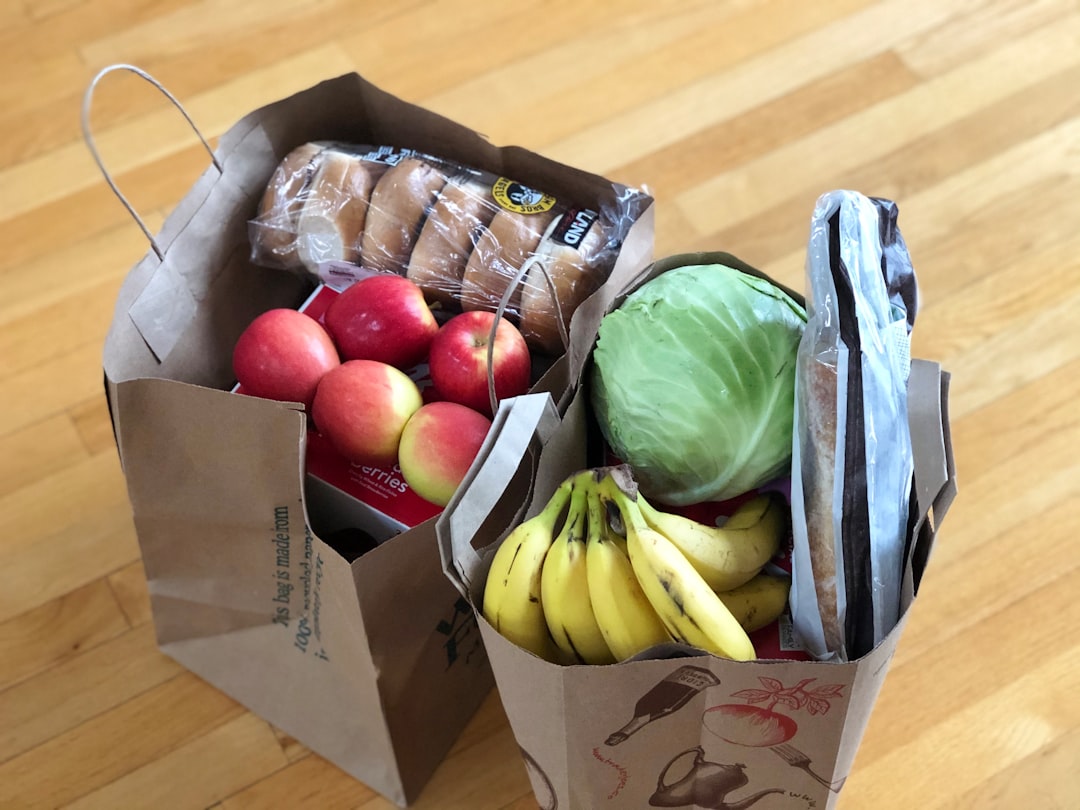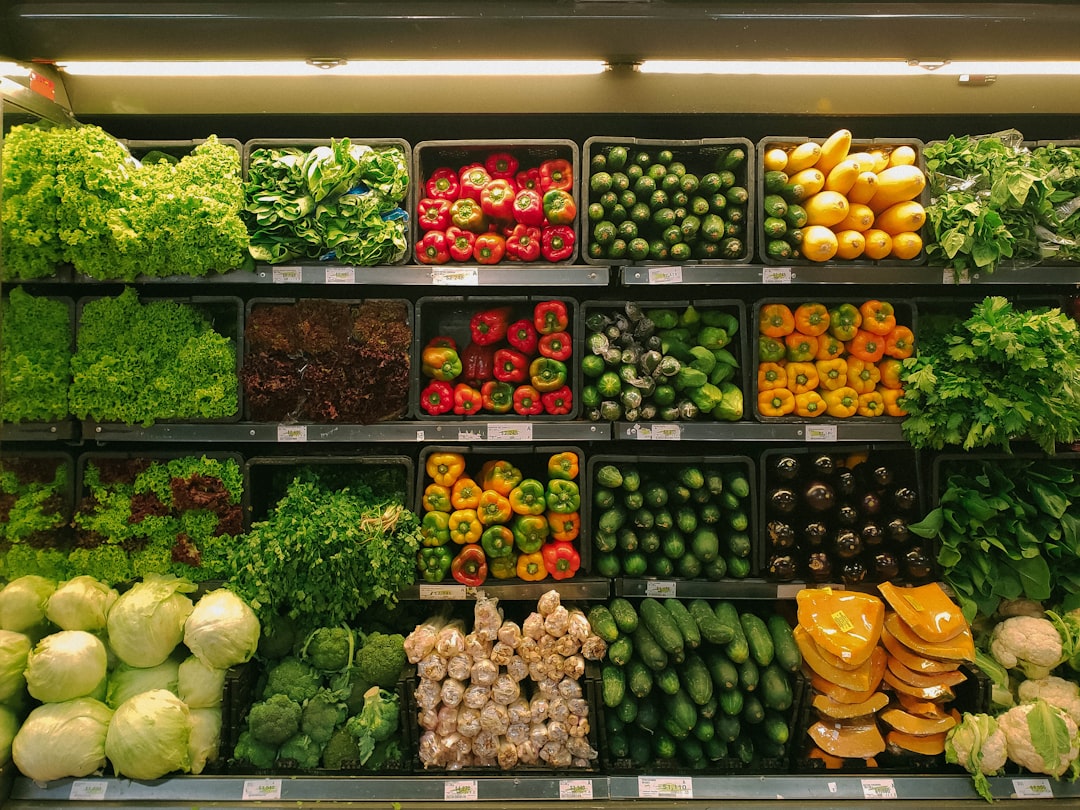In a world where fast food and convenience options are readily available, it can be easy to fall into the trap of choosing unhealthy meal options. However, making the effort to plan and prepare meals ahead of time can be a game-changer for your health and well-being. Meal planning involves taking the time to map out what you will eat ahead of time, whether weekly or daily. Doing so offers numerous benefits that can help you maintain a balanced and healthy diet while saving time, reducing stress and promoting better mental health.
Meal planning can help prevent impulsive food choices that may be unhealthy or contribute to an unbalanced diet. It ensures that you incorporate all food groups, leading to a more balanced meal. In addition, by planning meals in advance, you can focus on incorporating more variety in your diet. It can help you try new recipes or ingredients, as well as ensure that you are not eating the same thing day in and day out. This, in turn, can promote better eating habits and prevent boredom with your food choices.
Moreover, effective meal planning helps with budgeting, saving time and reduces food waste by purchasing only the necessary ingredients. With a proper meal plan, you can also ensure that you are utilizing ingredients efficiently and effectively. This means that, for example, when you buy a whole chicken, you can plan to use it for multiple meals throughout the week, saving you money in the long run.
Overall, meal planning is essential for anyone looking to maintain a healthy and balanced diet. It helps with budgeting, saves time, promotes variety in your diet, helps with weight management, reduces stress, encourages mindful eating and ultimately, supports a healthier and happier lifestyle. In the next sections, we will dive in deeper and explore each of these benefits.
Saves Time and Money
Meal planning is an essential aspect of maintaining a healthy diet. One of the notable benefits of meal planning is that it can positively impact your budget as well as helping to save time. With a plan in place, you can make sure that you get your grocery shopping done in one trip, rather than repeatedly running to the store for forgotten items. This saves you money on gas and eliminates the possibility of impulse purchases.
Additionally, when you have a meal plan in place, you can purchase ingredients in bulk or take advantage of sales at your local grocery store. This helps keep your food costs down while ensuring that you have access to all the necessary ingredients to create a diverse range of meals.
Another significant time-saving benefit of meal planning is that it enables you to bulk cook your meals in advance. This means that all your meals are prepped and ready when you need them, which saves you from the need to cook from scratch each day. It can be challenging to balance a busy life with meal preparation responsibilities, so having a clear plan of what you need to do saves you the time and stress of deciding what to eat on the spur of the moment.
To maximize your saving opportunities, you can also plan your meals around seasonal produce that tends to be cheaper and taste better. This could involve looking at local farmer’s markets or subscribing to community-supported agriculture (CSA) boxes. Ultimately, by employing a meal plan, people can save money and time while also promoting healthier eating habits.
This means that all your meals are prepped and ready when you need them, which saves you from the need to cook from scratch each day.
Promotes Variety and Balanced Meals
Eating the same meals every day can get boring and monotonous. This is where meal planning comes in to infuse some variety into your diet. By planning your meals ahead of time, you can ensure that you are getting a diverse range of nutrients and flavors.
When planning your meals, aim to incorporate different food groups and colors on your plate. Include a variety of fruits, vegetables, whole grains, lean proteins, and healthy fats. This way, you can ensure that your body is getting all the essential nutrients it needs to function properly.
In addition to promoting a balanced diet, meal planning can also help you experiment with new recipes and cuisines. Challenge yourself to try new ingredients and cooking techniques. You might discover a new favorite meal that you wouldn’t have tried otherwise.
Meal planning can also help you avoid relying on takeout and fast food, which often lack the nutritional value that your body needs. By planning your meals in advance, you can prepare healthier options that are quick and easy to make at home.
Ultimately, meal planning can help you achieve a balanced, varied, and nutritious diet. With a little bit of organization and creativity, you can plan meals that are both delicious and good for your body.
Meal planning can also help you avoid relying on takeout and fast food, which often lack the nutritional value that your body needs.
Helps with Weight Management
Meal planning is not only beneficial for saving time, reducing stress, and promoting variety in your diet, but it can also help with weight management. By planning your meals in advance, you can control the number of calories you consume and prevent overeating. This can be especially helpful if you are trying to lose weight or maintain a healthy weight.
When you plan your meals, you can decide on the right portions of each food group and ensure that you are getting a balanced intake of nutrients. This can help you avoid mindless snacking or reaching for less healthy options throughout the day. Additionally, meal planning allows you to make healthier choices and reduce your reliance on quick and unhealthy takeout meals.
Many studies have shown that planning your meals and snacks in advance can lead to more successful weight management. According to a study published in the International Journal of Behavioral Nutrition and Physical Activity, individuals who planned their meals for the week ahead consumed fewer calories and had a greater chance of achieving their weight loss goals than those who did not plan ahead.
In addition to the physical benefits, meal planning can also have a positive impact on your mental health. By taking control of your food choices and creating a routine around your meals, you can reduce decision-making fatigue and enhance your overall well-being. This is especially important for those with busy schedules or those who struggle with the temptation to make unhealthy food choices.
In conclusion, incorporating meal planning into your daily routine can be incredibly beneficial for weight management. By planning your meals in advance, you can ensure you are making healthier choices and taking control of your food intake. Start incorporating meal planning into your daily routine and take the first step towards a healthier, happier you.
When you plan your meals, you can decide on the right portions of each food group and ensure that you are getting a balanced intake of nutrients.
Reduces Stress and Enhances Mental Health
Meal planning isn’t just about making a grocery list and prepping meals in advance. It’s a tool that can help reduce stress and improve mental health. Making decisions about what to eat every single day can be overwhelming and exhausting. But when you have a plan in place, it takes the guesswork out of mealtime and reduces decision fatigue.
Without a plan, you may find yourself standing in front of the fridge or pantry, trying to decide what to eat. This can lead to grabbing whatever is most convenient, which may not always be the healthiest option. With meal planning, you have a clear idea of what you’ll eat each day, so there’s no need to stress about deciding what to eat on the spot.
Moreover, meal planning can help remove the temptation of unhealthy impulse buys when you shop at the grocery store. When you have a list of what you need and a plan for what you’ll make, you’re less likely to impulse-purchase junk food, saving you money in the long run.
Stress is a significant factor when it comes to our overall health, and meal planning can help alleviate some of that stress. When you don’t have to worry about what you’ll eat, it frees up mental space for other things. Plus, when you’re well-fed and not hungry, you’re better equipped to handle any additional stressors that come up throughout the day.
Finally, meal planning can encourage mindfulness in eating. When you set aside time to plan and prepare meals, you’re intentionally creating moments to savor your food instead of just scarfing it down. Mindful eating is a practice that can help you tune in to your body’s hunger and fullness signals, preventing overeating and nurturing a better relationship with food.
In summary, meal planning offers benefits beyond saving time and money, promoting variety, and helping with weight management. It can reduce stress, enhance mental health, and encourage mindful eating habits. If you haven’t tried meal planning before, consider giving it a shot, and see how it can transform your relationship with food and overall well-being.
When you set aside time to plan and prepare meals, you’re intentionally creating moments to savor your food instead of just scarfing it down.
Section 5 – Encourages Mindful Eating
Meal planning is not just about deciding what to eat and when to eat it. It is also about creating a more mindful approach to your eating habits. When you plan your meals in advance, you are more aware of what you are putting into your body, and you are more likely to make healthier choices.
It is easy to fall into bad habits when it comes to eating. Maybe you skip breakfast, have a quick fast food lunch, and grab something quick for dinner. You may not even be aware of how much you are eating or what you are putting into your body.
By taking the time to plan your meals, you are actively engaging in your food choices. You are taking control of what you eat, and you are making choices based on what your body needs, rather than what is convenient or available.
Meal planning can also help you develop a better relationship with food. When you take the time to plan and prepare your meals, you are creating a deeper connection with the food you eat. You are taking the time to appreciate the tastes, smells, and textures of your food, and you are savoring each bite.
This mindful approach to eating can help you avoid overeating or mindless snacking. When you are more aware of what you are eating, you are less likely to eat out of boredom, stress, or habit. Instead, you are more likely to make choices that nourish your body and mind.
Incorporating mindfulness into your meal planning can also help reduce stress and improve mental health. By taking the time to plan your meals, you can reduce decision fatigue and create a sense of order in your day. This can help reduce anxiety and create a sense of calm, making mealtime a more enjoyable and peaceful experience.
In conclusion, meal planning is not just about saving time, money, and promoting a healthy diet. It is also about developing a more mindful approach to eating, creating a deeper connection with your food, and improving your overall well-being. By taking the time to plan your meals, you are making a commitment to your health, both physically and mentally. So start planning for better health today!
So start planning for better health today.
Conclusion – Start Planning for Better Health Today
After exploring the benefits of meal planning in the previous sections, it is clear that incorporating this practice into your routine can lead to a healthier and happier lifestyle. By prioritizing meal planning, you not only save time and money, but also promote variety and balanced meals, manage your weight, reduce stress, and encourage mindful eating.
Meal planning does not have to be a daunting task. It can be as simple as creating a weekly meal schedule, taking inventory of your pantry and fridge, and making a grocery list. You can also incorporate meal prepping into your routine, which involves preparing meals or ingredients in advance to save time during the week.
Starting small and making gradual changes can help you incorporate meal planning into your routine without feeling overwhelmed. Additionally, there are various meal planning resources and tools available online, such as meal planning apps and recipe websites, to help streamline the process.
Making the effort to plan your meals and snacks can have a ripple effect on your overall well-being. Not only does it provide nourishment for your body, but it can also bring a sense of control and accomplishment to your daily routine.
So, what are you waiting for? Start planning for better health today and enjoy the many benefits that come with a well-planned, balanced diet.





